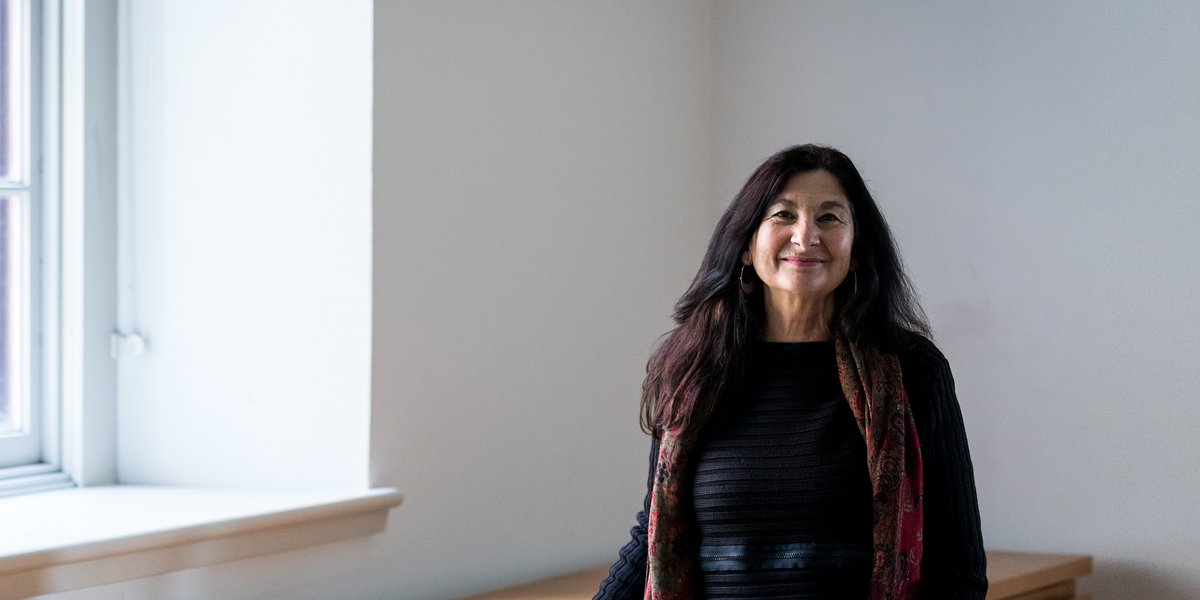Dr Margo Adler
"People come to Tasmania for scientific reasons, even if they don’t use that word. They want to see an Aurora, or do the Overland Track and see all these incredible species. Those are all scientific reasons."
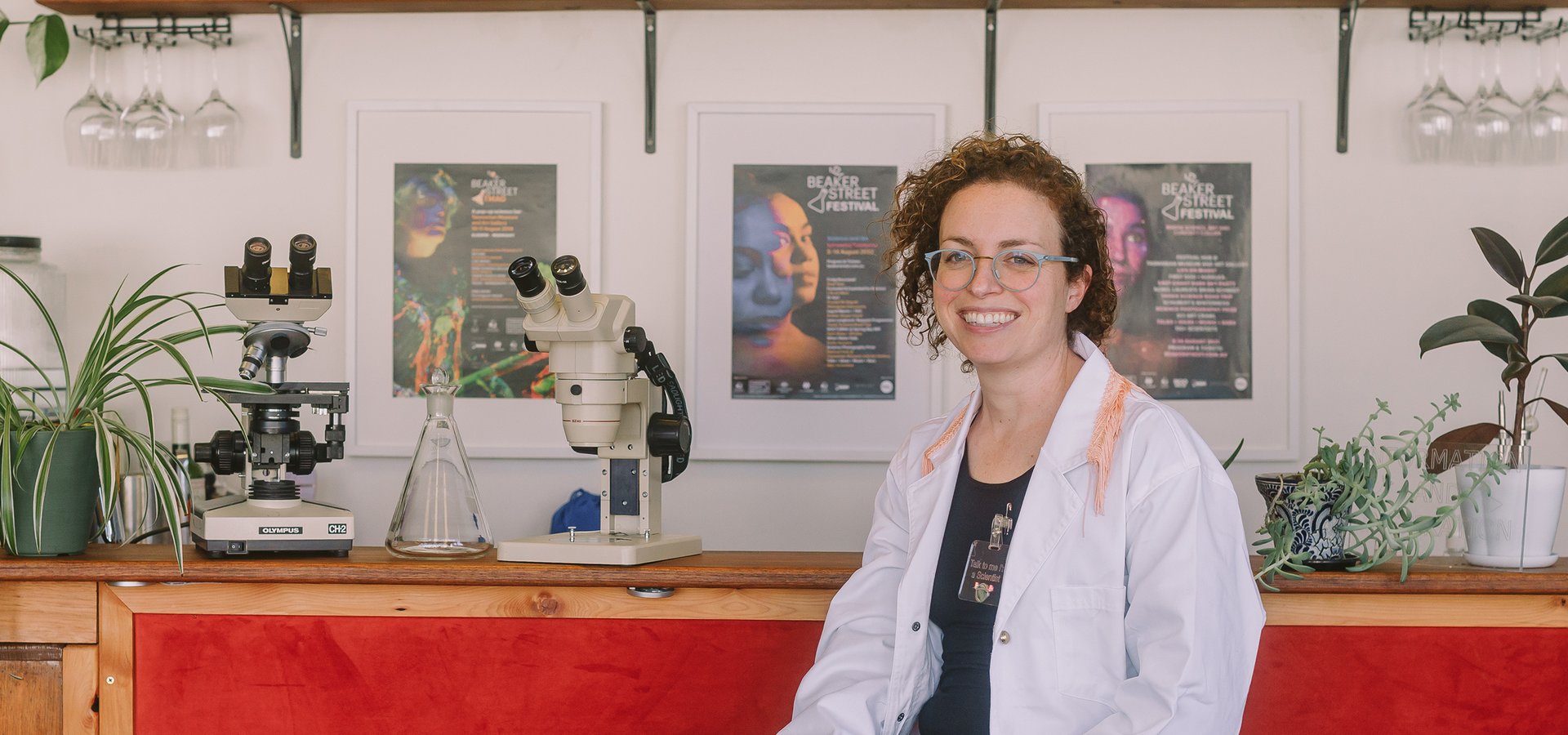
"There’s such talent here. That’s really what we’re trying to do — strengthen the community and build pride around science. We live in this capital city, at the bottom of the earth, teeming with scientists. I just think we need to really own it."
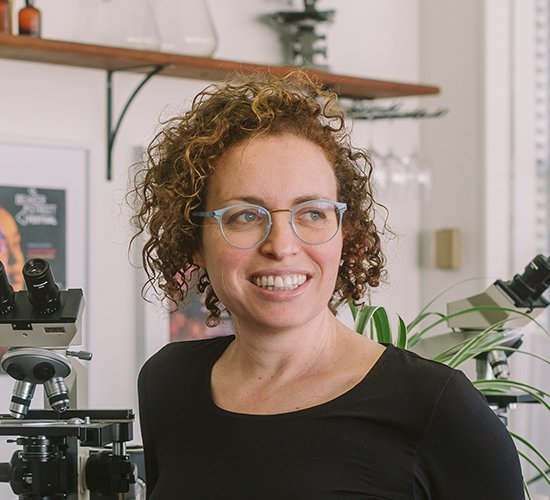
You’ll often hear that Hobart has more scientists, per capita, than any other Australian city.
They work in marine biology, Antarctic science, space technologies, dementia research, and a multitude of other specialties. But those recognised by census data are not the only ones drawn to Tasmania by science. Others may not think of themselves as scientifically-minded, but even if they have pursued seemingly unrelated passions, their curiosity and creativity hint at a love for science they may not even realise is there.
“People come to Tasmania for scientific reasons, even if they don’t use that word,” says Dr Margo Adler, founder of Tasmanian cultural organisation Beaker Street. “They come because they want to see an Aurora, or because they want to do the Overland Track and see all these incredible species, these amazing landscapes. Those are all scientific reasons.”
Beaker Street is the ultimate celebration of the sciences, both the obvious and the unseen. Their annual Beaker Street Festival explores the intersection of science and art, facilitating collaborations and enabling meaningful interactions between scientists, artists, and the public. Their pay-it-forward initiative, a Seat at the Table, offers attendees the opportunity to donate towards the cost of a stranger’s ticket when they purchase their own, enabling the organisation to offer free tickets to the Tasmanian community for all their events. Beaker Street exists to bring people together and make science accessible to all — particularly those who wouldn’t typically engage or may have limited opportunity to do so.
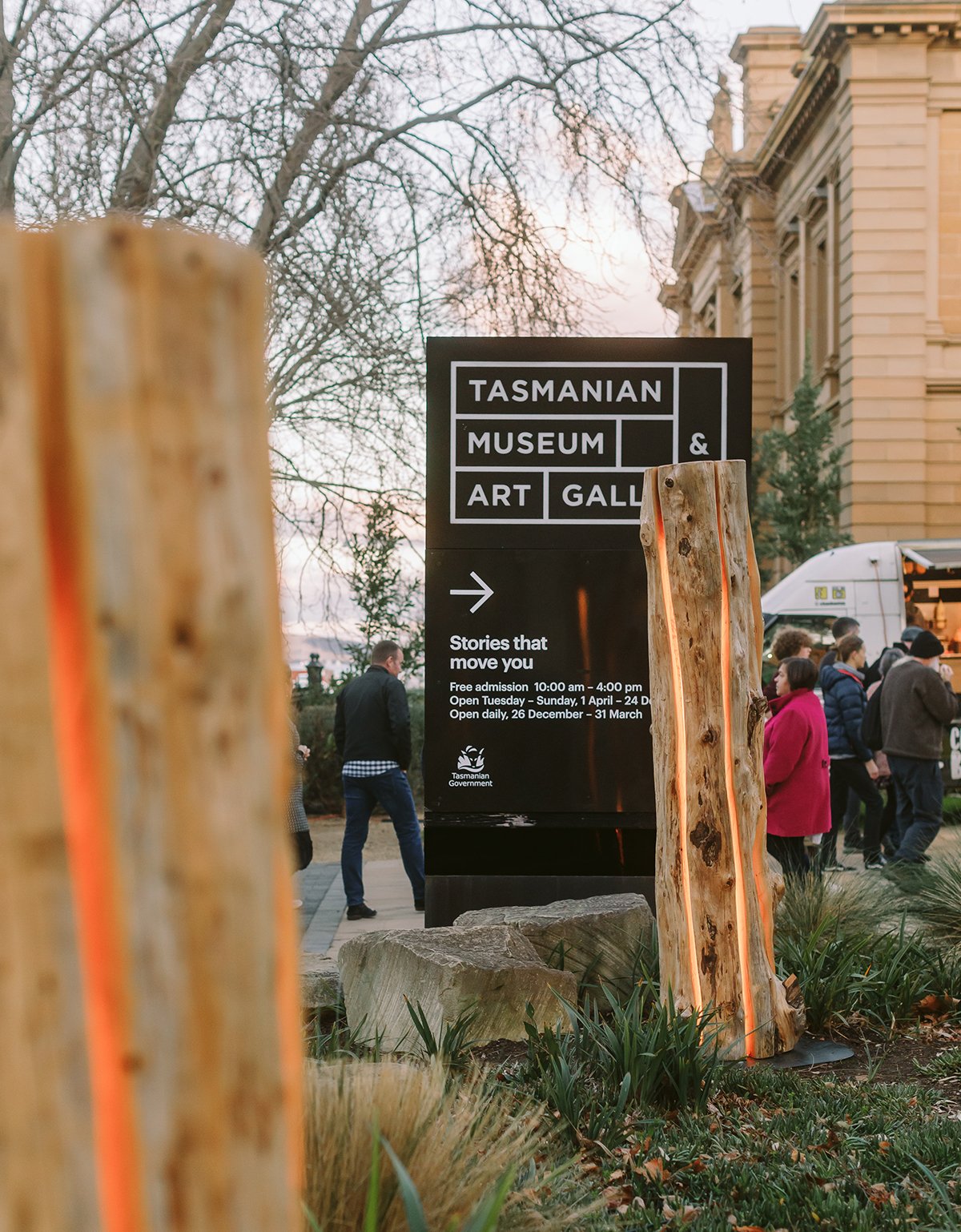
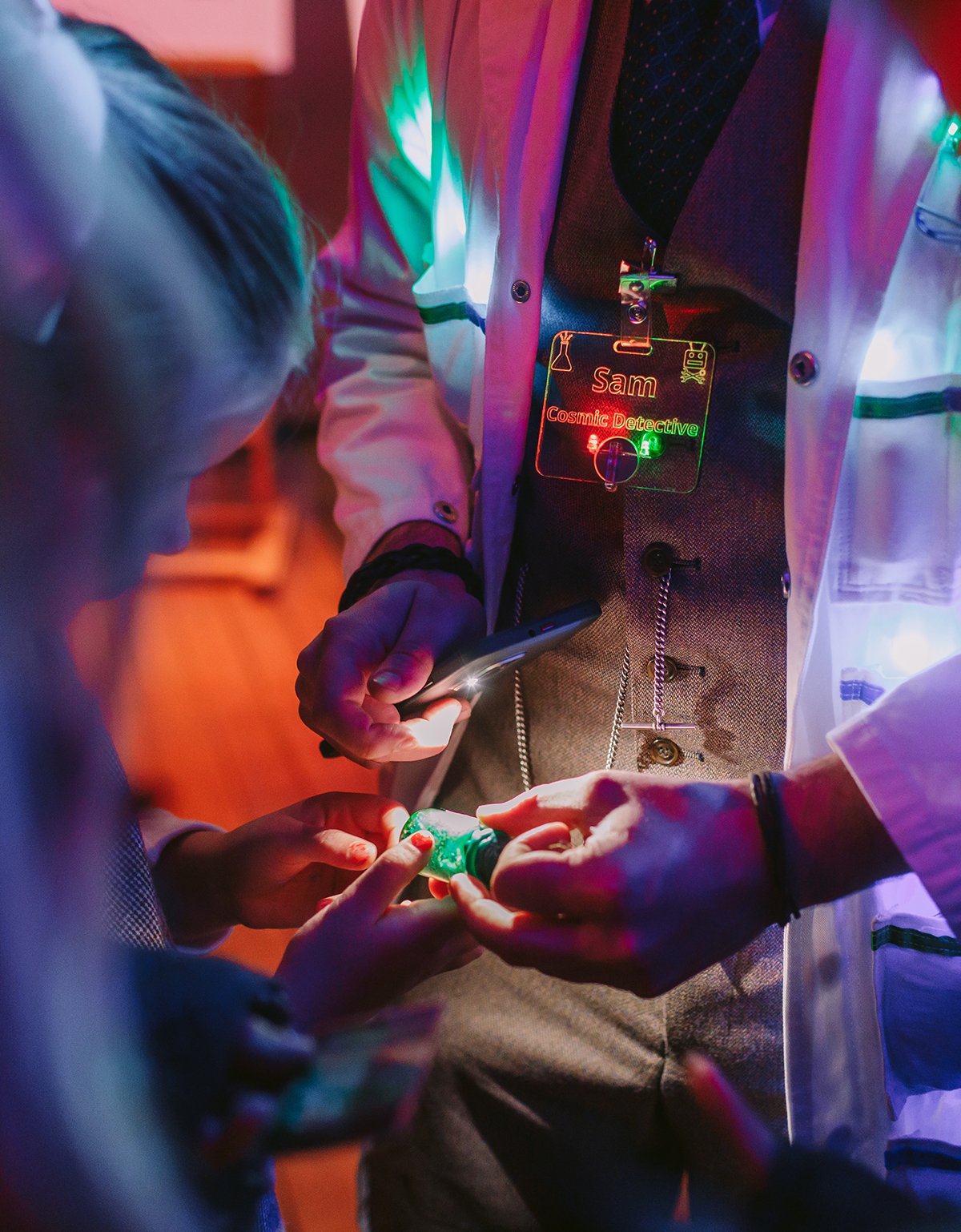
Margo didn’t start her career in science, or in Australia. Growing up in her hometown of New York City, she maintains that she studiously avoided science in school. Instead, Margo aspired to be a magazine editor. She spent her early 20s as a freelancer, writing for magazines and PR companies, before eventually realising it wasn’t quite what she dreamed it would be.
“I decided that I needed to change,” she remembers. “I asked myself, ‘What do I really want to do?’ One night I was lying awake trying to figure it all out, what I should do with my life. Suddenly, I knew. I literally sat up in bed and I said, ‘I know what it is! I want to be a dog psychologist!’”
Margo did not become a dog psychologist, but her late-night ruminations did eventually lead to classes in animal behaviour and neuroscience. She completed a Masters in conservation biology, followed by a PhD in evolutionary biology at UNSW Sydney. For someone who thought she hated science, Margo ended up doing a lot of science.
During her PhD, Margo spent her days looking through microscopes at flies, dissecting out their ovaries to determine the effect of diet on reproductive ageing. In her spare time, she organised events for post grads. Before she knew it, the events were happening every week; students getting together for a drink and a discussion, eventually with some visual aids thrown in for good measure. Margo called it the Big Ideas and Pretty Pictures Series: short, data-free talks that get going when the lights are down and the wine is flowing.
“It was a response to the idea that so many university talks and conferences are just… so boring,” she laughs. “They’re boring for everyone, and nobody ever remembers the boring data that you’re putting up there. Tell me something interesting, show me something! Give me a message that I’ll actually walk away with. There are so many instances in academia where the speakers are put up on a pedestal. They give a talk and then they disappear. There’s no opportunity for the audience to contribute.”
The Big Ideas and Pretty Pictures Series made Margo think about using science as a way to bring people together, a catalyst for social interaction. “I wanted to do something with that,” she says.
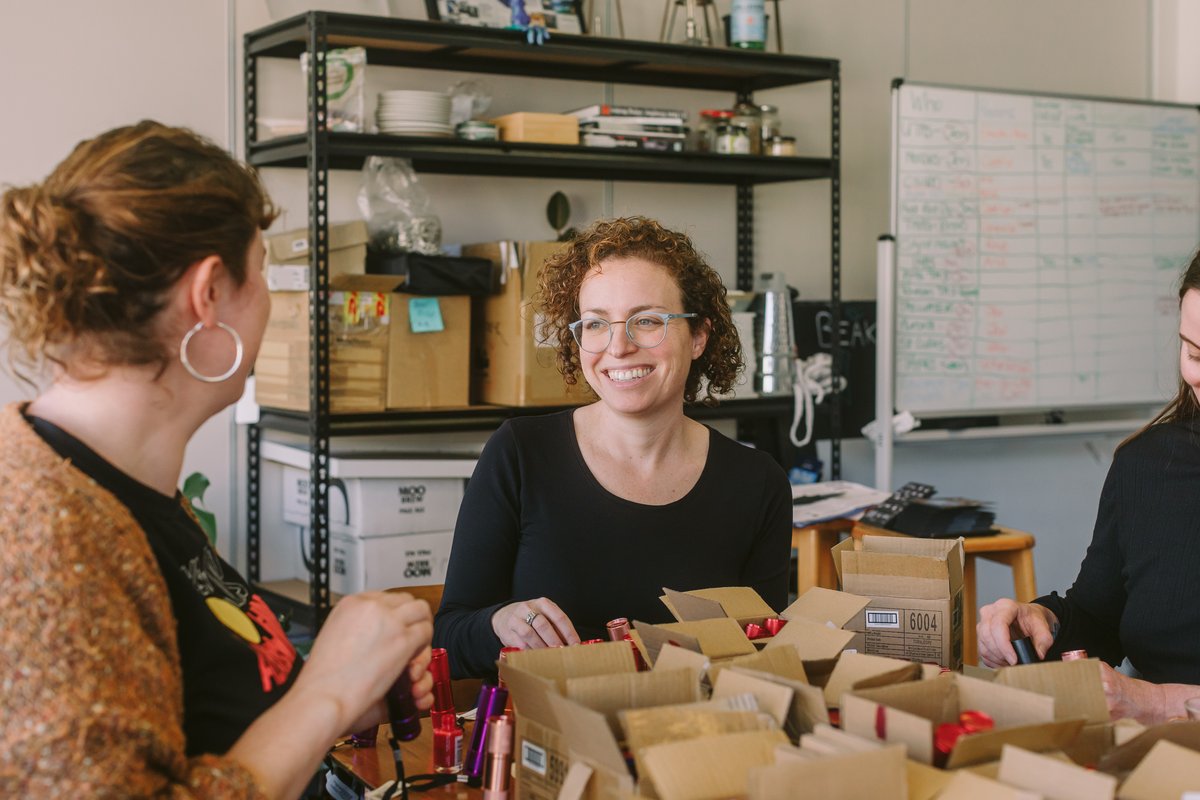
“Something” turned out to be a new concept: a science bar. A permanent home for art and science to intertwine, somewhere for scientists and non-scientists to hang out and share a drink, a place that would make science accessible through art. Margo’s partner was from Hobart, and it seemed like the perfect place for this endeavour. “I just thought that Hobart was the right place to start something. The people there were just so much more open and welcoming. It was so appealing.”
In 2015, Margo and her partner found a pub for sale in Hobart. It was perfect.
They decided to go for it.
They didn’t get it.
They moved to Hobart anyway.
“I had put so much into thinking about it and working on it. I was like, ‘We have to move here anyway, this is the place,’” Margo says. “I joined the National Science Week committee, and I decided to put in for a National Science Week grant to have a pop-up science bar instead.
“I didn’t think of it as a festival at first, but even in the first year it was so much bigger than I anticipated. I asked the Tasmanian Museum and Art Gallery (TMAG) if they would partner with us as the venue. It was three days – Friday and Saturday nights, and Sunday afternoon – and it was basically what the Festival Hub still is today, at TMAG. Now we’re seven years in and it’s become a ten-day festival, using multiple venues, with events around the state.”
Margo loves bringing artists and scientists together: a combination that may seem surprising to some, yet makes so much sense to her. “Scientists and artists have been taught to believe they’re at opposite ends of the spectrum, but they’re not at all. They both tend to be very creative. They experiment a lot. They take risks. They’re thinking outside of the box. Those are such important traits to be successful in either of those fields. They have a lot in common.”
Over the years, Beaker Street Festival has paired early-career scientists with high school students through their ongoing CoLab program, invited collaborations between astrophysicists and experimental musicians among others, and facilitated panel discussions about different lived experiences, such as deafness and blindness. The Beaker Street Crawl invites local businesses to open their doors and highlight the science in everyday life, from baking bread to how the grooves in vinyl records translate to sound. The festival finale, NOCTURNA, celebrates Tasmania’s dark skies at Spring Bay Mill on the East Coast – one of the darkest inhabited places on the planet. This year, Tasmanian Aboriginal speakers will come together to discuss palawa astronomy and the importance of preserving milaythina wurangkili, Sky Country.
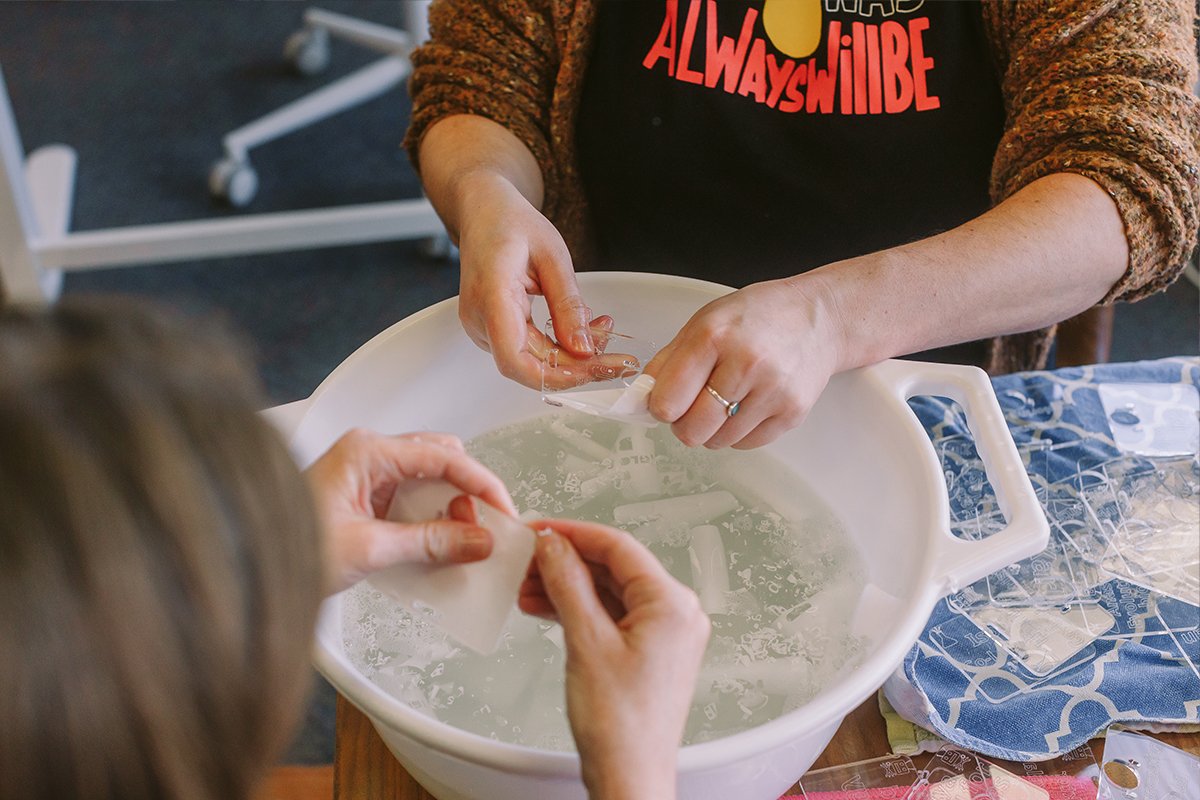
The idea is to humanise scientists. Before I got into science, I had no idea how to get into science. I didn’t know any scientists; I didn’t know how to approach a scientist. I didn’t know that I could just email someone and be like, ‘Hey, I’m interested in your work, can I come and have a chat?'
Just days out from the 2023 festival, the Beaker Street office in Hobart’s CBD is a hive of activity. Perspex LED name tags, designed and made in collaboration with Hobart Hackerspace, are being painstakingly prepared for the 200 roving scientists who will be wandering the Festival Hub at TMAG. The name tags don’t list any titles or accolades, only a first name and conversation starter: a research topic close to the heart, both literally and figuratively, of the wearer.
“The idea is to humanise scientists,” Margo explains. “Before I got into science, I had no idea how to get into science. I didn’t know any scientists; I didn’t know how to approach a scientist. I didn’t know that I could just email someone and be like, ‘Hey, I’m interested in your work, can I come and have a chat?’”
“Beaker Street is an opportunity to interact with scientists in an environment that feels really welcoming, and it gives the scientists access to the public to challenge some of their ideas. It can give scientists new ways of thinking about things, something totally out of left field. Because someone who’s not been trained in an area often has very interesting new ideas.”
Margo sees a future where Tasmania is celebrated as a place of science, as much as it is for its food, art, wilderness, wine and whisky.
“There’s such talent here. That’s really what we’re trying to do — strengthen the community and build pride around science. We live in this capital city, at the bottom of the earth, that’s teeming with scientists. I just think we need to really own it.”
And, someday, she still wants that science bar.

We worked with southern Tasmanian photographers Fred + Hannah for this Tasmanian story.
Read about more Tasmanians
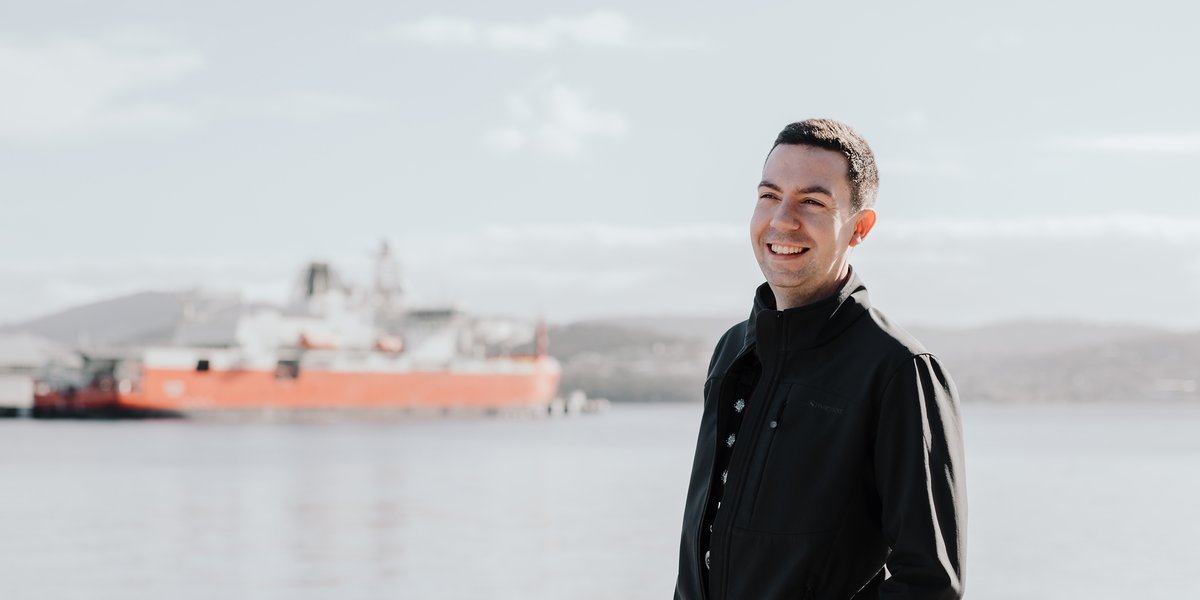
Dr Alex Fraser
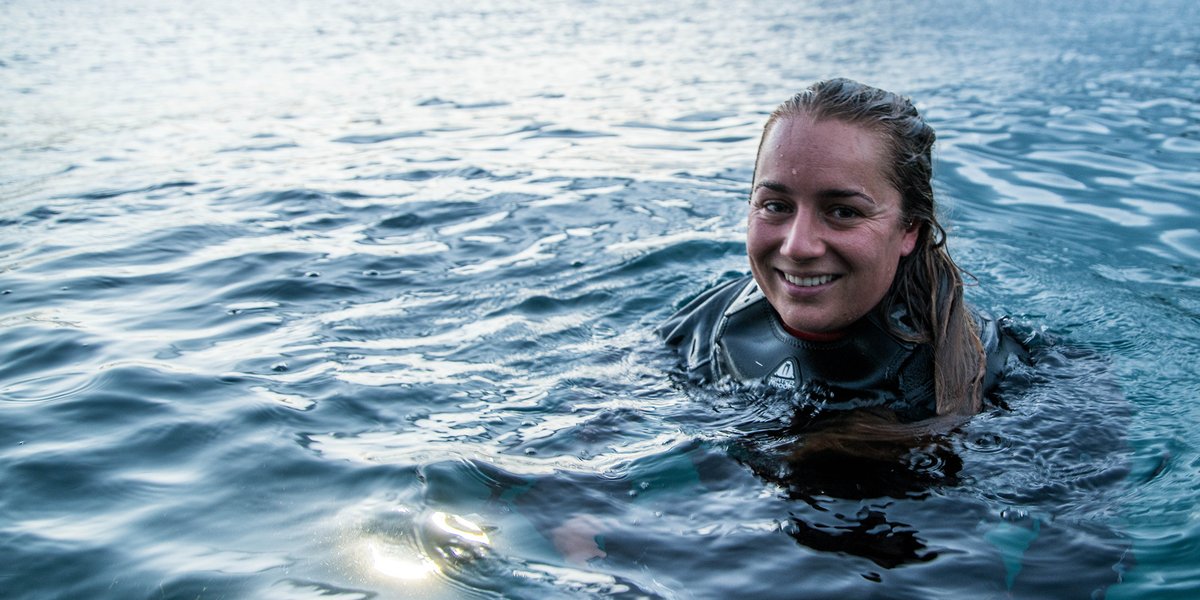
Joanna Smart
